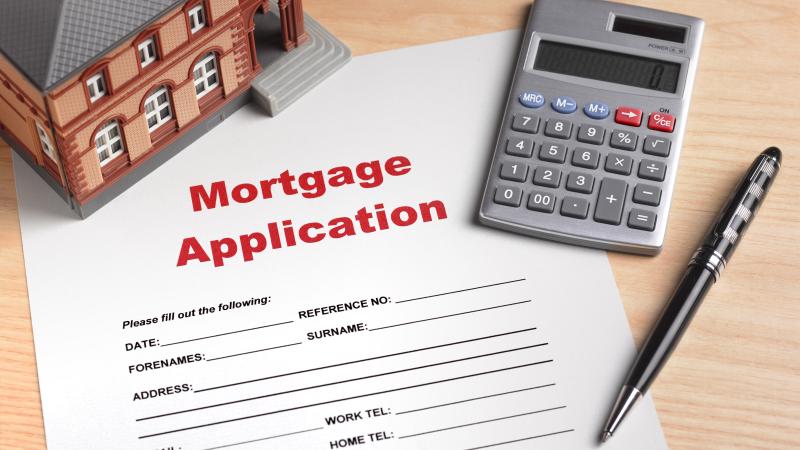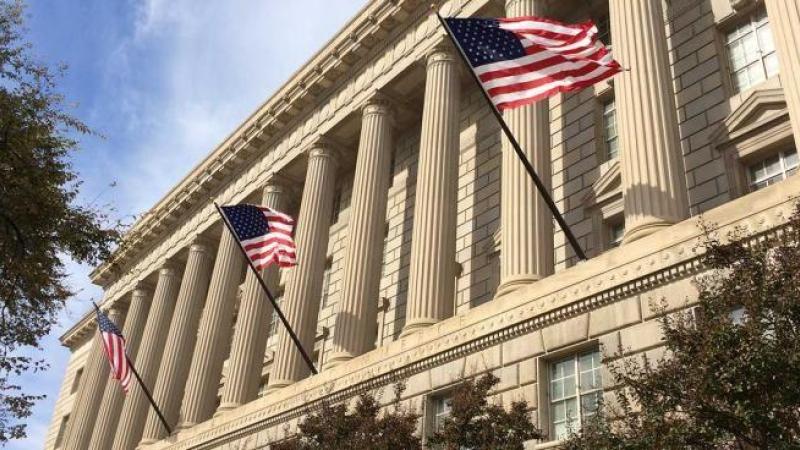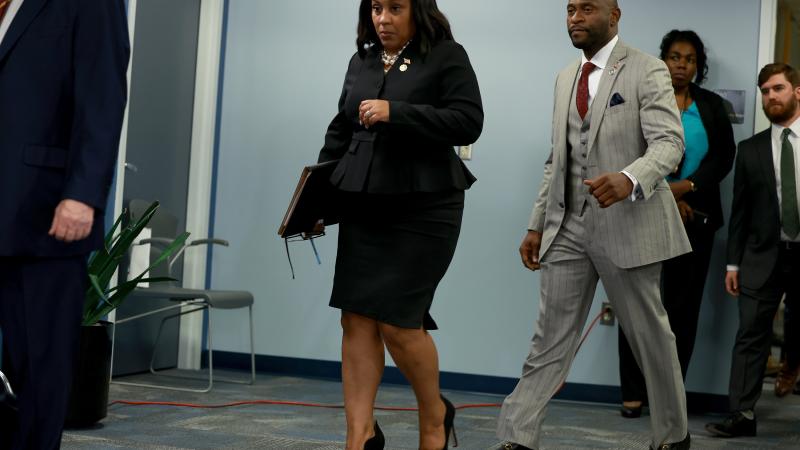Corporate layoffs are a warning sign of coming 'economic crash landing': economist
Companies have been cutting thousands of jobs as experts warn of a likely recession, despite Biden's dismissal of such concerns.
Three days after President Biden said the country's "not anywhere near a recession right now," Amazon founder and Executive Chairman Jeff Bezos warned a sharp economic downturn is looming.
"The economy does not look great right now," Bezos told CNN on Saturday. "Things are slowing down. You're seeing layoffs in many, many sectors of the economy. The probabilities say if we're not in a recession right now, we're likely to be in one very soon."
The billionaire entrepreneur declined to estimate how long he thinks the recession would last but cautioned people to prepare for a time of economic struggle.
"Take as much risk off the table as you can," he said. "Hope for the best, but prepare for the worst."
Two days after the interview, several media outlets reported that Amazon plans to lay off about 10,000 employees in corporate and technology roles beginning this week, the largest job cuts in the company's history.
Amazon's decision was the latest in a string of recent corporate layoffs amid fears of a coming recession next year.
Last week, for example, Facebook parent Meta announced the company is laying off 13% of its staff.
Meanwhile, Disney is planning a hiring freeze and some job cuts, according to an internal company memo obtained by CNBC.
News of all three decisions came shortly after Tuesday's midterm elections. All three companies have been embroiled in recent political controversies, with critics accusing them of supporting Democrats and left-wing causes and trying to censor conservatives.
The recent flurry of layoffs extend before Election Day, however, roiling the tech industry in particular but also extending from trucking to electronic cigarettes.
Despite the wave of layoffs and several stark warnings that a recession is coming, Biden told the country last Wednesday that such a downturn wasn't on the horizon.
"We're not anywhere near a recession right now, in terms of the growth," Biden said at the White House the day after the midterm elections. "I think we can have what most economists call a soft landing, and I'm convinced that we're going to be able to gradually bring down prices so that they, in fact, end up with us not having to move into recession."
The White House has echoed that message repeatedly in recent days.
"We are not in a recession," White House Chief of Staff Ron Klain told MSNBC earlier this month. "I want to be really, really clear on that."
That same day, White House Press Secretary Karine Jean-Pierre said that a recession was so out of the question that the Biden administration wasn't even holding meetings to prepare for one.
"There are no meetings or anything happening like that in preparing for a recession because ... look, what we're seeing right now is a strong labor market," she said.
However, economic experts have been warning a recession is looming.
"I think we are on the verge of a debt-driven economic crash landing," economist Stephen Moore told Just the News. "These layoff announcements are the canary in the coal mine. We now have $1 trillion in consumer debt on top of $4.1 trillion of Biden debt."
Americans could hold nearly $1 trillion in collective credit card debt before the end of the year due to historically high inflation, which has caused everyday costs such as food to skyrocket.
According to experts who previously spoke to Just the News, soaring inflation was caused by Biden's economic policies — namely too much spending — combined with the Federal Reserve keeping interest rates near zero while continuing to print money.
Now the Federal Reserve is raising rates to slow down the economy in order to combat inflation. Doing so, however, may push the economy into a downturn, even a recession, next year.
Still, the Biden administration and some economists remain optimistic that the economy can avoid such a fate with a so-called soft landing. Many projections, however, see the situation differently.
There's a 65% chance of a recession within the next 12-18 months, according to a survey of economists conducted by Bankrate, a consumer financial services company, for its Third-Quarter Economic Indicator. That estimate is up from 52% in its second quarter survey and about one-third in its first quarter survey.
Meanwhile, Bloomberg economists' projection models from last month show a 100% chance of an economic downturn by October 2023, up from a 65% probability for the comparable period in the model's previous update.
The CEOs of both Goldman Sachs and JPMorgan, the U.S. and European economic teams for Barclays bank, and former Boston Federal Reserve President Eric Rosengren are among those who also forecast a recession next year.
According to Bankrate.com senior economic analyst Mark Hamrick, the devastating effects of "high and sustained" inflation have ironically made considerations of a potential recession "academic," because Americans are already feeling significant economic pain.
"With the prices for necessities such as food, energy, and shelter being so high, many individuals and households have needed to cut back on discretionary purchase," he told Newsweek.
Inflation and the economy more broadly will likely continue to be at the forefront of the American people's minds moving forward. Polling over the last several months, including exit polls taken after people voted on Election Day, has shown almost uniformly that voters ranked the economy, particularly inflation, as their most important issue. That same polling has also shown a majority of Americans disapprove of Biden's handling of inflation and the economy.
The Facts Inside Our Reporter's Notebook
Links
- told
- reported
- plans
- lay off
- string of recent corporate layoffs
- announced
- according
- accusing
- supporting
- censor
- recent flurry of layoffs
- roiling
- tech industry
- trucking
- electronic cigarettes
- said
- told
- said
- nearly $1 trillion
- spoke
- raising rates to slow down the economy in order to combat inflation
- Third-Quarter Economic Indicator
- projection models
- Barclays bank
- Eric Rosengren
- told
- Polling
- exit polls
















